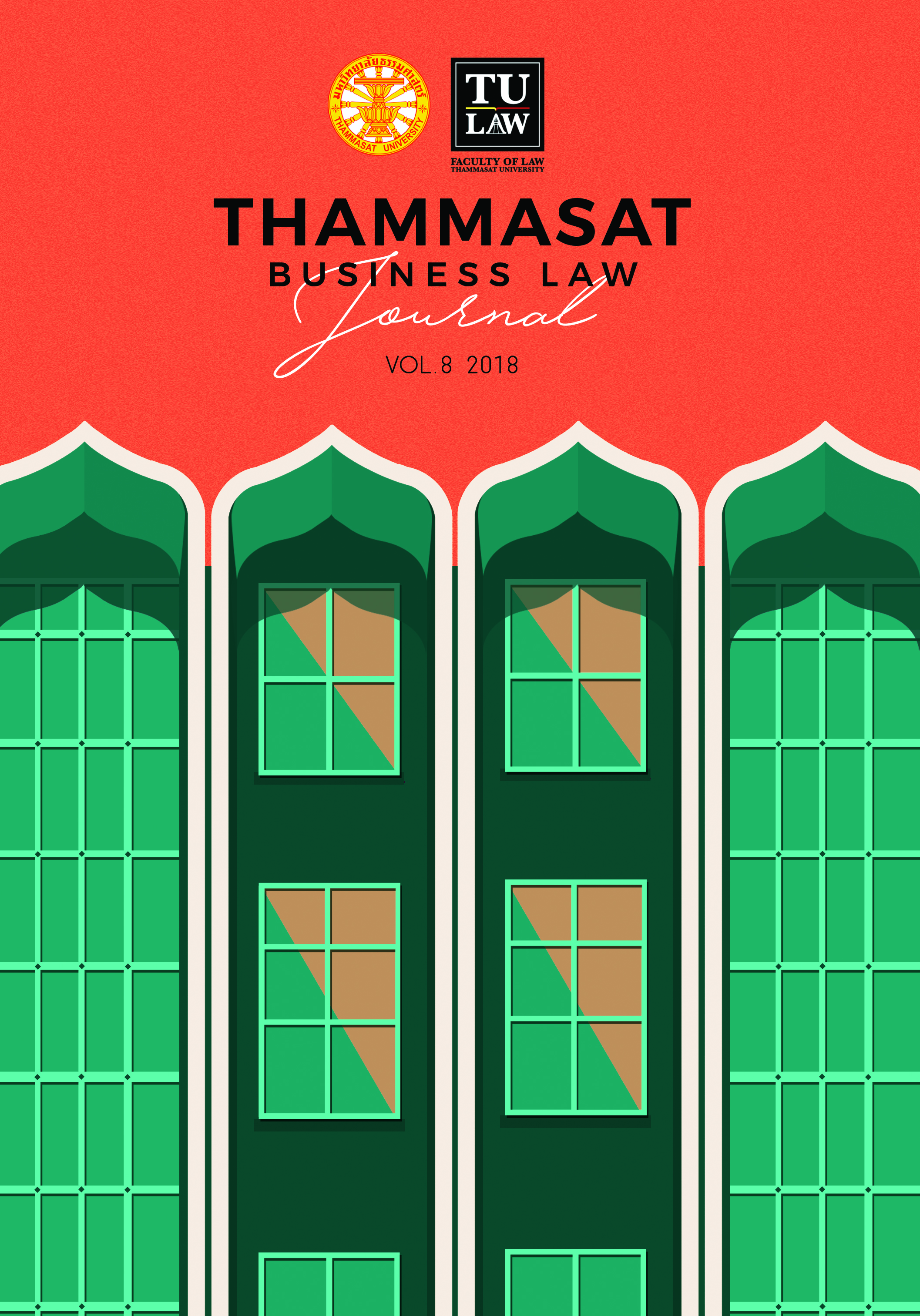Legal Issues with Section 56 of the Protection of a Child Born by Medically Assisted Reproductive Technology Act B.E. 2558 (2015)
Main Article Content
Abstract
Parental recognition of surrogate children born of unqualified intended parents or non-compliant surrogacy falls right in the gap of both public and private laws. Section 56 of the Protection of a Child born by Medically Assisted Reproductive Technology Act (ART Act) was incorporated with an aim to protect the rights of surrogate children born prior to the enactment of the law. Due to its rigid wordings, it limits the rights of some intended parents to file for the child legitimation and jeopardizes the rights of the child to have proper parentage.
By viewing the child’s right as paramount, true and honest intent of the intended parents together with the principle of the best interests of the child should be jointly applied when determining parentage of surrogate children. To prevent the children from exploitation, intended parents must prove their parental capability and inspection by government authorities should take place after the court has issued the order.
Surrogate children deserve the right to know their birth history through proper birth registration process. Recognition of Thai citizenship under the principle of jus soli must be made available for surrogate children who may be exposed to risks of becoming stateless. Government authorities must admit that the children, whether they are born naturally or by surrogacy, must be entitled to have a family and receive protection from the government under Article 16 of the Universal Declaration of Human Rights. Most importantly, the dignity of surrogate children as human beings must be upheld and they must be treated equally like all other children.
Article Details
References
'Assisted Reproductive Technology (ART) And Surrogacy Abroad' (Travel.state.gov, 2018)
Henk Ten Have, Global Bioethics (Taylor and Francis 2016).
Mary Keyes, 'Australia', International Surrogacy Arrangements: Legal Regulation at the International Level (Hart Publishing 2013).
Pavan v Smith [2017] Arkansas Supreme Court (Arkansas Supreme Court).
Phunthip Kanchanachittra Saisoonthorn, Discussion on the Civil Registration and Citizenship of Surrogate Children (2018).
Prince v Massachusetts, 321 US 158 [1944] The United States Supreme Court (The United States Supreme Court).
Scott E Friedman, The Law of Parent-Child Relationships (Section of Family Law, American Bar Association 1992).
Songphol Puttasiri, Kamthorn Pruksananonda and Wiboolphan Thitadilok, 'Knowledge and Attitude of Obstetricians to The Protection of Children Born from Assisted Reproductive Technology' (2017) 25 Thai Journal of Obstetrics and Gynaecology.
'Surrogacy Laws | Summary of The Laws on Surrogacy in the UK & USA' (Britishsurrogacycentre.com, 2018)
The Permanent Bureau, 'A Preliminary Report on the Issues Arising from International Surrogacy Arrangements’ (2012)
ไพโรจน์ กัมพูสิริ, คำอธิบายประมวลกฎหมายแพ่งและพาณิชย์ บรรพ 5 ครอบครัว (พิมพ์ครั้งที่ 9, มหาวิทยาลัยธรรมศาสตร์, 2554) (Pairoj Kampusiri, Kham Athibai Pramuan Khodmai Paeng Lae Panich Bab 5 Krobkrua [Explanation of Book V of the Civil and Commercial Code Regarding Family] (9th edn, Thammasat University 2011)).
เอมผกา เตชะอภัยคุณ บุญมี, การเรียกค่าเสียหายจากการใช้วิธีผสมเทียมที่ผิดพลาดในประเทศสิงคโปร์ คดี ACB V Thomson Medical Pte Ltd And Others, รพี, พิมพ์ครั้งที่ 1, คณะนิติศาสตร์ มหาวิทยาลัยธรรมศาสตร์ 2560. (Aimpaga Techa-apikun Boonmee, Karn Riek Khasiahai Chak Karn Chai Withi Pasomthiam Tii Pidplad Nai Prathet Singapore Khadi ACB V Thomson Medical Pte Ltd and Others [Claiming for Damages from Error in IVF in Singapore, ACB v Thomson Medical Pte Ltd and Others] (1st edn, Faculty of Law, Thammasat University 2017)).


